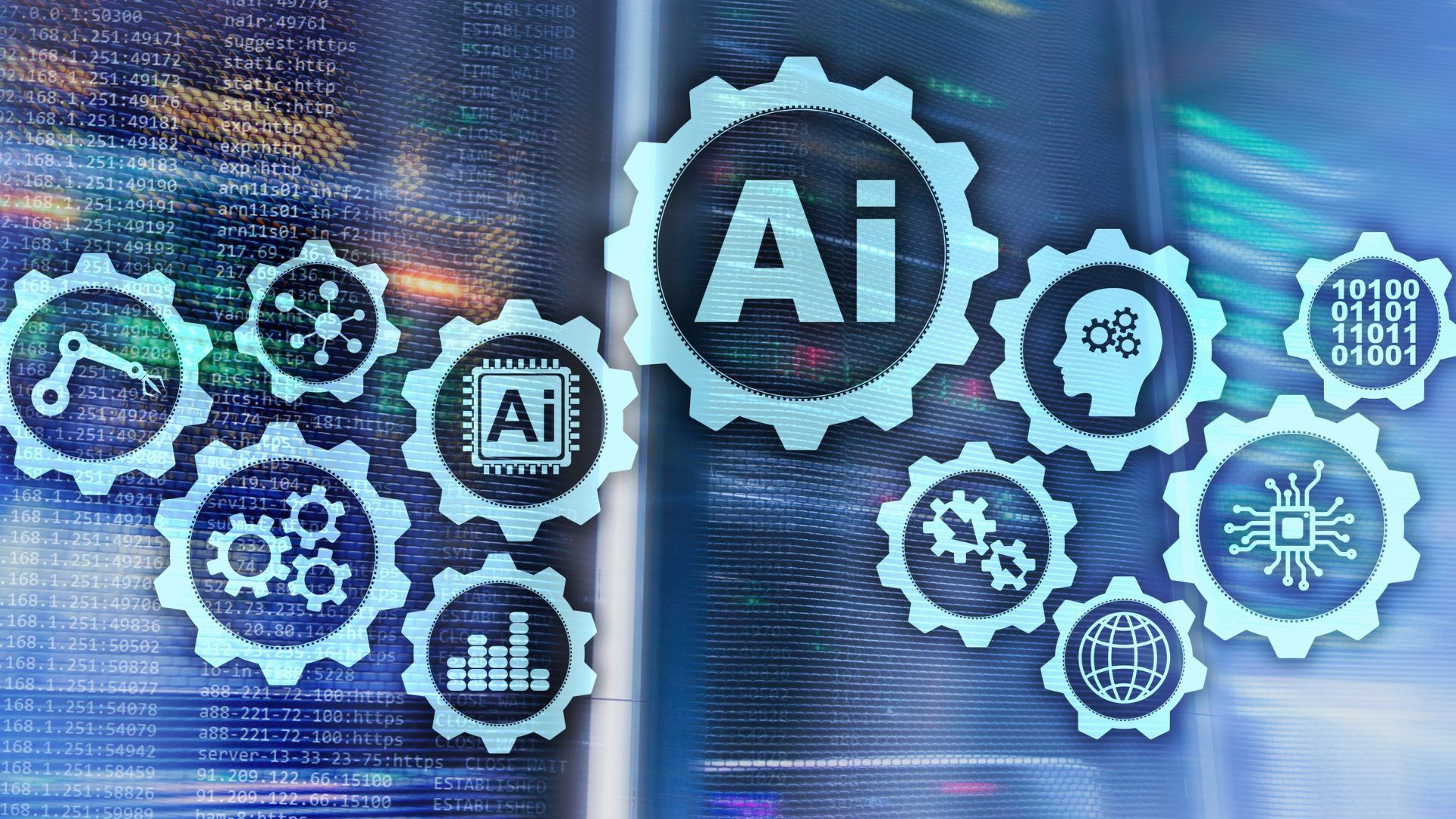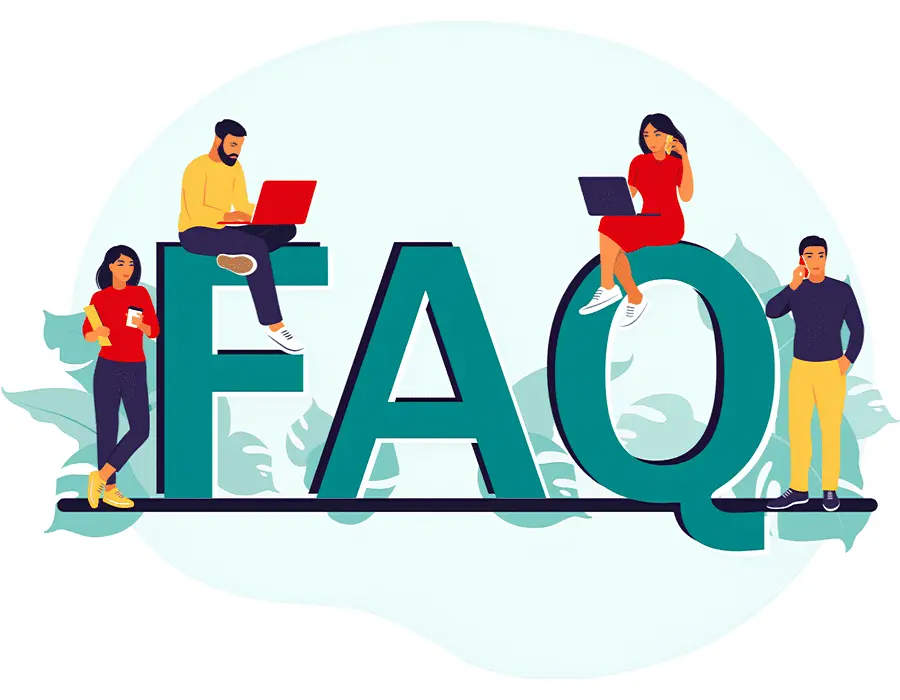Best AI Marketing Tools: Revolutionizing Digital Marketing
Are you ready to unlock the power of AI in your marketing strategy?
This comprehensive guide delves into the world of the Best AI Marketing Tools, exploring their evolution, benefits, types, challenges, and impactful implications on businesses. Join us as we uncover the secrets to maximizing your marketing potential with cutting-edge AI technologies.
Introduction to Best AI Marketing Tools
In the ever-evolving marketing landscape, where every click, scroll, and purchase is a data point waiting to be analyzed, the integration of artificial intelligence (AI) has emerged as a game-changer.
But what exactly are AI Marketing Tools, and how do they revolutionize how businesses connect with their audience?
Imagine having a tireless marketing assistant who never sleeps, never tires, and consistently delivers exceptional results. That’s the promise of AI Marketing Tools. But what exactly are they?
Simply put, AI Marketing Tools harness the power of artificial intelligence to automate and optimize various aspects of your marketing efforts. From content creation to customer segmentation, these tools revolutionize how businesses engage with their audience.
Best AI Marketing Tools in the Market
The Best AI Marketing Tools on the market encompass diverse solutions tailored to streamline and optimize every facet of the marketing journey.
From harnessing the prowess of Natural Language Processing (NLP) tools for crafting compelling copy to employing Predictive Analytics Platforms for forecasting market trends, these tools offer unparalleled insights and efficiency.
Chatbots and Virtual Assistants engage customers in real-time, while Cutting-edge Analytics provide deep dives into campaign performance. Dynamic Content Creation ensures relevance and resonance, while Predictive Customer Behavior Analysis enables targeted outreach.
Content creation and optimization tools refine messaging for maximum impact, complemented by customization and customer segmentation for tailored experiences.
Predictive Analytics and Forecasting tools aid in strategic decision-making, while Social Media Management and SEO Optimization enhance visibility across digital platforms.
Among these, standouts like The Adaptive Wizard, The Insightful Guru, and The Dynamic Innovator epitomize innovation, adaptability, and foresight, shaping the landscape of AI-driven marketing strategies.
Natural Language Processing (NLP) Tools
Natural Language Processing (NLP) tools are at the forefront of AI innovation in marketing. These sophisticated algorithms analyze and interpret human language, enabling marketers to gain invaluable insights from various textual data sources.
From social media conversations and customer reviews to email correspondence and website content, NLP tools sift through vast amounts of unstructured data to extract meaningful patterns, sentiments, and themes.
By harnessing the power of NLP, marketers can uncover customer preferences, sentiment trends, and emerging topics of interest, allowing for more targeted and personalized marketing strategies.
Moreover, NLP facilitates the automation of repetitive tasks such as content categorization, sentiment analysis, and language translation, freeing up valuable time for marketers to focus on strategic initiatives.
As NLP technology continues to evolve, its applications in marketing are becoming increasingly diverse and impactful, revolutionizing how businesses engage with their audience and optimize their marketing efforts.
Predictive Analytics Platforms
Predictive analytics platforms represent a cornerstone of AI-driven marketing strategies. These sophisticated systems leverage machine learning algorithms to analyze historical data, identify patterns, and accurately forecast future trends.
Predictive analytics platforms empower marketers to anticipate consumer needs, identify potential opportunities, and optimize marketing campaigns for maximum impact by analyzing vast datasets encompassing customer behavior, market dynamics, and external influences.
Through predictive modeling, marketers can tailor product recommendations, forecast sales trends, and optimize pricing strategies to enhance customer satisfaction and drive revenue growth.
Furthermore, predictive analytics platforms enable marketers to mitigate risks, detect anomalies, and adapt their approach to real-time changing market conditions.
As businesses increasingly rely on data-driven insights to inform their marketing decisions, predictive analytics platforms are poised to play a pivotal role in shaping the future of marketing intelligence and strategy execution.
Chatbots and Virtual Assistants
Chatbots and virtual assistants have emerged as indispensable tools for enhancing customer engagement and support in the digital age. These intelligent conversational interfaces, which use AI and natural language processing capabilities, simulate human-like interactions and offer customers individualized support and information round-the-clock.
Chatbots are deployed across various digital channels, including websites, social media platforms, and messaging applications, to address customer inquiries, resolve issues, and facilitate real-time transactions.
Chatbots streamline customer service by automating routine customer interactions, reducing response times, and improving overall satisfaction.
Conversely, virtual assistants offer more advanced capabilities, such as scheduling appointments, making reservations, and providing personalized recommendations based on user preferences and historical interactions.
As businesses strive to deliver seamless and personalized customer experiences, chatbots and virtual assistants are essential to their omnichannel marketing strategies. They drive efficiency, scalability, and customer loyalty.


Cutting-edge Analytics
The Tool represents the pinnacle of analytics sophistication in AI marketing tools. Its prowess lies in its ability to delve deep into the labyrinth of data generated by modern businesses and extract invaluable insights that would otherwise remain hidden.
The Tool analyzes historical data and predicts future trends with uncanny accuracy through advanced algorithms and machine-learning techniques. Imagine anticipating shifts in consumer behavior before they happen, allowing businesses to stay one step ahead of the competition.
The possibilities with the Tool are limitless, from identifying emerging market trends to optimizing advertising strategies in real time. Its intuitive interface and customizable dashboards make it accessible to users of all skill levels, empowering businesses to make data-driven decisions with confidence.
Dynamic Content Creation
In today’s fast-paced digital landscape, content is king. But creating engaging, personalized content at scale can be daunting for even the most seasoned marketers.
The Tool revolutionizes content creation by quickly enabling businesses to produce dynamic, high-quality content using sophisticated natural language processing and machine learning algorithms.
Whether crafting personalized product recommendations based on user preferences or generating custom email campaigns tailored to individual interests, this Tool does it all.
By automating repetitive tasks and streamlining the content creation workflow, Dynamic Content Creation Tool frees up valuable time and resources, allowing businesses to focus on what they do best—connecting with their audience meaningfully.
Predictive Customer Behavior Analysis
Understanding consumer behavior is the holy grail of marketing, and Tool Predictive Customer Behavior Analysis brings this aspiration within reach. By leveraging the power of predictive analytics, Tool goes beyond simple data analysis to anticipate future behaviors and preferences with unprecedented accuracy.
Imagine predicting which customers are most likely to churn or which products are poised to become bestsellers before they happen.
With Tool Predictive Customer Behavior Analysis, businesses can segment their audience more effectively, target their marketing efforts with laser precision, and ultimately drive higher conversion rates and ROI.
Its intuitive interface and actionable insights make it a must-have tool for any business looking to stay ahead of the curve in today’s hyper-competitive marketplace.
Content Creation and Optimization
AI-powered content creation and optimization tools streamline the creation process, generating engaging and relevant content on various topics. These tools use advanced algorithms to analyze performance metrics and user feedback to fine-tune content for maximum impact.
They help marketers create content that captures attention and drives results. In today’s fast-paced digital landscape, strategic optimization is crucial for staying ahead of the competition.
With AI-powered tools, marketers can effectively elevate their marketing efforts and connect with their audience.
Personalization and Customer Segmentation
AI-powered content creation and optimization tools streamline the creation process, generating engaging and relevant content on various topics. These tools use advanced algorithms to analyze performance metrics and user feedback to fine-tune content for maximum impact.
They help marketers create content that captures attention and drives results. In today’s fast-paced digital landscape, strategic optimization is crucial for staying ahead of the competition.
With AI-powered tools, marketers can effectively elevate their marketing efforts and connect with their audience.
Predictive Analytics and Forecasting
Predictive analytics and forecasting tools are crucial in marketing to predict future trends and outcomes. These AI-driven tools analyze historical data, identify trends, and accurately forecast future outcomes.
By leveraging machine learning algorithms, marketers can anticipate consumer behavior, identify emerging trends, and forecast demand. They also help optimize current strategies, maximize ROI, and drive measurable results. In today’s fast-paced market, predictive analytics is essential for success.
Social Media Management
AI-powered social media management tools help marketers streamline their efforts by automating tasks, analyzing performance metrics, and optimizing campaigns.
These tools streamline content scheduling, monitoring mentions, and sentiment analysis, allowing marketers to build meaningful connections with their audience.
They also enable businesses to identify trends, monitor conversations, and respond to customer inquiries in real time, fostering a sense of community and loyalty among followers. These tools drive meaningful results for businesses in today’s digital landscape.
SEO Optimization
SEO optimization is crucial in the digital landscape, as it helps websites rank higher in search engine results pages (SERPs) and drive organic traffic. AI-powered tools help marketers analyze search trends, identify keywords, and optimize content for visibility.
They provide insights and recommendations to improve search engine rankings and drive more website traffic. SEO optimization also focuses on delivering value to the audience by creating high-quality, relevant content that addresses their needs and interests.
SEO optimization is essential for long-term success in today’s competitive digital landscape.
The Adaptive Wizard
Meet the Adaptive Wizard, your trusty companion in AI marketing. Picture this: a versatile tool that seamlessly adapts to your marketing campaigns’ unique needs and challenges, like a shape-shifter blending effortlessly into its surroundings.
Whether you’re crafting compelling email sequences, optimizing ad placements, or fine-tuning your social media strategy, the Adaptive Wizard has your back. Its intuitive interface empowers marketers of all skill levels to wield the power of machine learning with ease.
By analyzing vast amounts of data in real time, this wizard identifies trends, predicts consumer behavior, and suggests actionable insights to drive your campaigns to new heights.
It’s like having a digital marketing maestro orchestrate every move, ensuring maximum impact and ROI.


The Insightful Guru
Enter the realm of enlightenment with the Insightful Guru, a beacon of wisdom in the vast sea of marketing data. Picture this: a tool so insightful that it feels like peering into the future of your brand’s success.
The Insightful Guru’s advanced analytics capabilities and real-time insights illuminate the path to marketing mastery. Dive deep into the ocean of consumer data, uncovering hidden patterns and untapped opportunities that others might overlook.
Harness the power of predictive analytics to anticipate trends before they emerge, giving your brand a competitive edge. But the Insightful Guru isn’t just about data—it’s about actionable insights that drive results.
Like a sage guiding you through the complexities of modern marketing, this tool empowers you to make informed decisions, confidently transforming data into dollars.
The Dynamic Innovator
Step into the future of marketing with the Dynamic Innovator, a trailblazer in AI-powered technology. Imagine a tool that pushes the boundaries of what’s possible, blending cutting-edge innovation with unparalleled creativity.
With its AI-powered chatbots, immersive virtual reality experiences, and predictive analytics, the Dynamic Innovator transforms your marketing efforts from ordinary to extraordinary.
Engage your audience with personalized messaging tailored to their preferences and behaviors like never before. Break free from the constraints of traditional marketing methods and embrace the limitless potential of AI-driven innovation.
The Dynamic Innovator isn’t just a tool—it’s a catalyst for change, propelling your brand into the future of marketing excellence.
Importance of AI in Marketing
What is AI Marketing?
AI marketing is a transformative force in the marketing landscape. It utilizes artificial intelligence to streamline and optimize marketing processes. It’s like a digital assistant, capable of crunching data, predicting consumer behavior, and automating repetitive tasks.
AI marketing offers insight, innovation, and impact. It enables businesses to personalize, optimize, and connect more effectively with their audience, driving growth, loyalty, and success.
The Evolution of AI in Marketing
The evolution of AI in marketing has been a significant journey, starting with automation tools that simplify repetitive tasks like email marketing. As technology advanced, so did the role of AI in marketing.
Machine learning algorithms enabled marketers to analyze vast amounts of data, uncover insights into consumer behavior, and predict customer needs. Today, AI powers content creation, customer segmentation, and social media management.
As technology advances, the possibilities for AI-driven marketing solutions are limitless, with virtual assistants and AI-powered chatbots shaping the future of marketing.
Benefits of AI Marketing Tools
AI marketing tools offer businesses numerous benefits, including automating repetitive tasks, personalizing marketing messages for individual customers, making data-driven decisions based on real-time insights, and gaining a deeper understanding of customer and market dynamics.
These tools allow marketers to schedule social media posts, analyze performance metrics, and optimize campaigns in real time, enhancing efficiency and allowing them to stay ahead of the competition.
By harnessing the power of AI, businesses can unlock new opportunities for growth and success, driving sustainable results and staying ahead of the curve in a rapidly evolving landscape.
Enhanced Customer Insights
AI revolutionizes marketing and customer understanding by providing businesses with vast data analysis.
By analyzing social media interactions and purchasing behavior, AI can uncover hidden patterns and trends, enabling businesses to tailor products, services, and marketing strategies to meet their target audience’s needs and drive engagement, loyalty, and revenue.
Personalized Marketing Strategies
AI-powered personalized marketing strategies enable businesses to deliver tailored experiences to each customer, regardless of scale. These strategies, including dynamic product recommendations and hyper-targeted email campaigns, speak directly to individual preferences and behaviors.
By delivering relevant, timely content, businesses can increase conversion rates, drive customer satisfaction, and build long-lasting relationships.
Enhanced Personalization
Personalization has long been hailed as the holy grail of marketing, but with AI, it reaches new heights of sophistication and effectiveness. AI-powered personalization goes beyond simply addressing customers by name.
It’s about profoundly and individually understanding their preferences, behaviors, and needs. Imagine a marketing campaign that feels tailor-made for each recipient, like a bespoke suit crafted to perfection.
AI analyzes vast troves of data—purchase history, browsing behavior, and social media activity—to create hyper-personalized experiences that resonate deeply with customers.
From personalized product recommendations to dynamically generated content, AI personalization is the secret sauce that transforms generic marketing into memorable, meaningful interactions.
Predictive Analytics
Predicting the future sounds like something out of a sci-fi movie, but with AI-powered predictive analytics, it’s a reality. Predictive analytics leverages historical data and advanced algorithms to forecast future trends, behaviors, and outcomes accurately.
It’s like having a crystal ball that reveals insights into what your customers want before they know it themselves. By analyzing patterns and identifying correlations in data, AI predicts everything from consumer preferences to market trends, enabling businesses to stay one step ahead of the competition.
With these insights, marketers can make informed decisions, optimize campaigns, and seize opportunities before they arise, driving growth and success in an ever-changing marketplace.


Automation of Routine Tasks
In the fast-paced marketing world, time is of the essence, and routine tasks can quickly drain productivity. Enter AI-powered automation, the ultimate solution for streamlining workflows and freeing valuable time for more strategic endeavors.
From email marketing to social media management, AI automates repetitive tasks precisely and efficiently, like a well-oiled machine humming in the background.
Imagine never having to manually schedule posts, analyze data, or respond to customer inquiries again. With AI, routine tasks are handled automatically, allowing marketers to focus their time and energy on creativity, strategy, and innovation.
By automating the mundane, AI empowers marketers to do what they do best—create compelling campaigns, build meaningful connections, and drive business growth.
Challenges in Implementing AI Marketing Tools
Data Privacy and Security Concerns
Due to the vast amount of consumer data collected, AI marketing tools face data privacy and security challenges. Regulations like GDPR and CCPA mandate strict measures to protect personal data.
Ethical concerns about transparency, consent, and algorithmic bias necessitate robust data governance frameworks. Prioritizing these issues fosters customer trust and mitigates regulatory risks.
Integration Complexity with Existing Systems
The integration complexity of AI marketing tools with existing systems is a significant challenge, as businesses often operate in complex IT ecosystems with varying software applications, databases, and legacy infrastructure.
This can lead to compatibility issues, data synchronization bottlenecks, and workflow disruptions.
Interpretation of AI-generated Insights
Due to their complexity and opacity, AI-generated insights challenge marketers. To effectively use AI, marketers need human expertise and domain knowledge.
Addressing these challenges requires data literacy training, cross-functional collaboration, and transparent AI-driven decision-making processes.
By enhancing interpretability and human-machine collaboration, businesses can unlock AI-generated insights and drive innovation in marketing strategies and customer experiences.
Cost and Resource Allocation
AI marketing tools can be costly for small and medium-sized enterprises (SMEs), with significant upfront investments and resource allocation.
However, the potential ROI of AI marketing tools is substantial, as they automate repetitive tasks, optimize campaigns, and deliver personalized experiences.
AI technology’s scalability allows businesses to start small and gradually expand their capabilities, minimizing upfront costs and maximizing flexibility. With careful planning and understanding of potential ROI, companies can harness AI’s power for growth and success in the digital age.
Algorithm Bias
AI algorithms can revolutionize marketing, but they also have inherent biases. Algorithm bias can lead to unfair or discriminatory outcomes, impacting targeted advertising and credit scoring.
Recognizing and mitigating bias is crucial for ethical, inclusive, and effective AI-powered marketing. Addressing bias in data and algorithms can help marketers harness AI’s power for positive outcomes for all stakeholders.
Impact of AI Marketing Tools on Businesses
Enhancing Customer Experience and Engagement
AI marketing tools significantly improve customer experience and engagement by enabling businesses to create personalized experiences, analyze customer data in real time, and provide relevant content.
AI-powered chatbots and virtual assistants also enhance customer satisfaction and loyalty, increasing engagement and advocacy.
Improving Marketing ROI and Efficiency
AI marketing tools improve ROI and efficiency using predictive analytics and machine learning.
They help identify high-value segments, forecast campaign performance, and allocate resources effectively. AI-driven attribution models provide insights into customer journey impact, enabling businesses to allocate resources effectively.
Empowering Personalized Marketing Campaigns
AI can help businesses create personalized marketing campaigns by segmenting audiences, tailoring messaging, and delivering personalized experiences across channels.
This technology enables marketers to engage customers at every stage of the buyer’s journey, ensuring relevance and effectiveness over time. This approach drives higher conversion rates and customer satisfaction.
Improved Decision Making and Strategy
AI marketing tools enhance decision-making and strategic planning by providing data-driven insights, including historical performance metrics and predictive analytics.
This allows marketers to make real-time informed decisions, identify opportunities, anticipate market shifts, and adapt strategies.
AI facilitates agile decision-making by automating routine tasks and streamlining workflows, freeing time for strategic initiatives. This enables businesses to stay ahead of the fast-paced digital landscape.
Competitive Advantage and Market Positioning
AI marketing tools give businesses a competitive advantage by enhancing customer insights and personalization. By analyzing vast amounts of data, AI helps companies understand customer preferences and needs, allowing them to tailor products and services to meet their needs.
Additionally, AI optimizes marketing efforts, increasing engagement and conversion rates while reducing wasted resources. By leveraging AI tools, businesses can differentiate themselves, stay ahead of the competition, and enhance their market position in today’s dynamic marketplace.


Best Practices for Leveraging AI Marketing Tools
Conduct Comprehensive Research and Analysis
To effectively use AI marketing tools, businesses must conduct thorough research and analysis to understand their target audience, market dynamics, and competitive landscape.
This includes gathering data from customer feedback, market trends, and competitor strategies. This helps identify opportunities for innovation and competitive advantage.
Establish Clear Objectives and KPIs
Establishing clear objectives and key performance indicators (KPIs) is crucial for successful AI marketing implementation. These goals guide decision-making, track progress, evaluate performance, and optimize campaigns.
Aligning objectives with KPIs ensures accountability, transparency, and alignment across teams, driving continuous improvement and success in AI-driven marketing endeavors.
Ensure Cross-functional Collaboration and Training
Cross-functional collaboration and training are crucial for successfully implementing AI marketing tools in organizations. This involves marketers, data scientists, and IT professionals working together to align objectives, share expertise, and overcome challenges.
Comprehensive training ensures employees have the necessary skills to leverage AI tools effectively.
Factors to Consider in Choosing AI Marketing Tools
Several key factors must be remembered when selecting the right AI marketing tools for your business. Let’s dive deeper into each one:
Accuracy and Reliability
In the fast-paced world of marketing, accuracy and reliability are non-negotiable. Businesses must prioritize solutions that deliver precise, trustworthy insights when evaluating AI marketing tools.
This means looking beyond flashy features and digging into the underlying algorithms and methodologies that power the tool. Does the tool have a proven record of producing accurate predictions and recommendations?
Are there safeguards in place to prevent biases or errors in the data? By ensuring the accuracy and reliability of their AI tools, businesses can make confident, data-driven decisions that drive success.
Scalability
As businesses grow and evolve, so must their marketing strategies. Scalability is paramount when choosing AI marketing tools. Can the tool accommodate increasing volumes of data and changing business needs without sacrificing performance or reliability?
Scalability isn’t just about handling more data; it’s also about adapting to changing market dynamics and customer preferences. Whether scaling up to meet growing demand or pivoting to seize new opportunities, businesses need AI tools that can grow with them at every step.
Cost-effectiveness
While the allure of cutting-edge AI technology is undeniable, businesses must also consider the bottom line. From upfront implementation costs to ongoing maintenance and support, the total cost of ownership can vary significantly from one AI marketing tool to another.
Before making a decision, businesses should carefully evaluate each tool’s ROI potential, weighing the benefits against the costs. Are there hidden fees or long-term contracts that could inflate the total cost?
Are there alternative solutions that offer similar functionality at a lower price point? By conducting a thorough cost-benefit analysis, businesses can ensure they get the most value for their investment in AI marketing tools.
Ease of Integration
Ease of integration is crucial in marketing, as AI tools can be seamlessly integrated into existing systems without disrupting operations. This minimizes downtime, compatibility issues, and adoption across organizations.
AI tools should offer flexible options, such as APIs, SDKs, or pre-built connectors, allowing marketers to customize workflows and connect with popular platforms.
Successful Implementation of AI Marketing Tools
AI marketing tools have proven to be transformative in various industries. For instance, an e-commerce giant used predictive analytics to boost sales by analyzing customer data to identify trends and optimize product recommendations.
A local business expanded its reach with dynamic content creation, increasing website traffic and revenue. A healthcare provider also uses AI to improve patient care by analyzing patient data to identify patterns and trends, enabling proactive, patient-centered care.
This led to improved patient outcomes, reduced healthcare costs, and a reputation as a leader in innovative healthcare delivery. Overall, AI marketing tools have proven robust for businesses and organizations.
Future Trends in AI Marketing
Due to its rapid evolution, AI marketing is undergoing significant changes. Hyper-personalization transforms how businesses engage with their audience, enabling tailored content and product recommendations.
Voice search optimization is becoming crucial as voice-enabled devices like smart speakers and virtual assistants make it easier for businesses to appear prominently in voice search results.
Predictive marketing, a staple of AI marketing, is gaining momentum as machine learning algorithms analyze historical data and real-time customer interactions.
This allows businesses to proactively tailor their strategies to meet evolving audience needs, driving higher ROI and customer satisfaction.
Conclusion
AI marketing tools are revolutionizing how businesses approach marketing, offering new opportunities for customer engagement and sustainable growth. However, data privacy and integration complexity require careful consideration and strategic planning.
Companies can unlock new growth opportunities and innovation by choosing the right tools and staying ahead of emerging trends. Success requires a strategic mindset, adaptability, and a commitment to putting the customer first.
The possibilities are limitless with the right tools, techniques, and mindset.
FAQs
- Are AI marketing tools suitable for all industries?
While AI marketing tools can benefit businesses across various industries, their suitability depends on factors such as the marketing ecosystem’s complexity, data availability, and stakeholders’ willingness to embrace new technologies.
In general, industries with large amounts of data and a need for personalized customer experiences stand to benefit the most from AI marketing tools.
- What makes AI marketing tools different from traditional marketing tools?
AI marketing tools leverage advanced algorithms to analyze data and automate tasks, enabling more personalized and efficient marketing strategies.
- What role will AI play in the future of marketing?
AI will continue to play an increasingly central role in marketing, driving innovation, personalization, and efficiency. However, marketers must remain vigilant and ethical in using AI to ensure positive outcomes for both businesses and consumers.
- What industries can benefit most from AI marketing tools?
AI marketing tools are versatile and can benefit many industries, including e-commerce, retail, healthcare, finance, and more. Any business that relies on data-driven insights to inform its marketing strategies can gain from AI.
- Are AI marketing tools suitable for small businesses?
Absolutely! While AI technology was once considered exclusive to large enterprises, advancements in cloud computing and SaaS platforms have made AI marketing tools more accessible to small businesses than ever before. Many AI tools offer scalable pricing plans tailored to small businesses’ needs and budget constraints.









